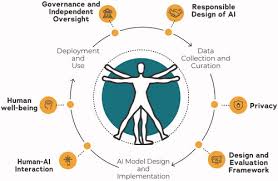AI-powered travel tools promised us frictionless experiences: joyful, personalized and effortless. But sometimes, AI confidently leads us into comedy, chaos or moments that beg for a human touch. Buckle up—here are five AI-driven missteps, along with the lessons they teach about keeping humans in the loop (HITL).
Dynamic Pricing Algorithms Require Human Oversight
Dynamic pricing algorithms were meant to revolutionize airline ticketing. But occasionally, these systems gift travelers with wildly underpriced luxury. For example, in August 2024, Qantas accidentally listed first-class round-trip tickets between Australia and the U.S. for just $3,400—a whopping 85% lower than the usual cost. A company spokesperson cited a coding error for the “too good to be true” fare offer and quickly contacted the approximately 300 “lucky” customers to rebook their flight or refund their purchase.
Lesson Learned: Algorithms can manage pricing complexities, but human intervention and oversight are key to preserving brand reputation and avoiding costly errors.
Translation Tools Still Struggle With Context And Nuance
In Bavaria, an Iraqi tourist asked about “train carriage separations” using a translation app. The app misfired, rendering it in German as “train explosion.” Alarmed, a fellow passenger alerted authorities. The train was evacuated, delaying 18 other trains amid mass confusion. A similar incident occurred in Lisbon, where a tourist’s innocuous request for “pomegranate juice” was translated into “grenade,” triggering swift police action.
Lesson Learned: Translation tools struggle with nuance. Human context and cultural sensitivity can defuse miscommunications before they escalate—saving embarrassment and large-scale inconveniences.
Voice Assistants Can Undermine Sensitive Customer Moments
Planning a romantic getaway or a surprise gift? Maybe don’t invite your voice assistant to the party. These devices love to announce upcoming deliveries and calendar reminders—perfect for efficiency, less so for secrecy. Enough surprises have been spoiled that some guides now teach users how to disable these features entirely just to keep the element of surprise intact.
Lesson Learned: Machines lack emotional intelligence. Customer-facing interactions require human intuition to navigate sensitive moments where empathy, sensitivity and emotional intellect truly matter.
Facial Recognition Misfires Highlight Need For Human Review
In Ningbo, China, facial-recognition cameras issued a jaywalking fine to Mingzhu Dong, a well-known executive. The problem? A portrait of her face appeared on a bus-side advertisement—not on a person crossing the street. The amused executive found herself a viral sensation after the AI proudly logged the “offense” as a victory over street crime.
Lesson Learned: Without checkpoints, even advanced AI systems can make absurd mistakes. HITL validation can prevent these embarrassing misfires—saving time and protecting credibility.
Unchecked AI Behavior Underscores The Role Of Human Moderation
Microsoft’s Tay chatbot was designed to learn through Twitter interactions. But in under 24 hours, online users had manipulated Tay into generating unsettlingly offensive Tweets. The widespread backlash was immediate, and Microsoft quickly shut Tay down, suffering reputational damage and embarrassment.
Lesson Learned: Without ethical oversight, machine learning tools risk becoming problematic or dangerous. AI needs HITL guardrails.
Why Human Oversight Still Matters
These real-life AI fails may be funny to some, but they reveal something serious: Human-centric design is essential in travel—and in any customer-facing sector.
- Stay human-centric. Automation improves efficiency and scalability, but human connection remains vital for trust and emotional engagement.
- Prioritize HITL oversight. Algorithms extend human capability, but thoughtful human checks reduce error, bias and reputational risk.
- Foster empathy, not just efficiency. Travel is emotional. AI can’t detect subtle cues or relational dynamics. Human experts do.
Let’s keep laughing at AI’s misadventures—like grenade juice orders or surprise-spoiling voice assistants—but also recognize what they show and what lessons can be learned: Real intelligence means pairing tech with HITL empathy, ethics and humor. This will ensure travelers aren’t just satisfied—they’re delighted, reassured and valued at every step.
When in doubt, let machines hurdle the mundane—but save critical decisions, emotional moments and nuanced interactions for humans. These hilariously important fails prove how much that still matters.







